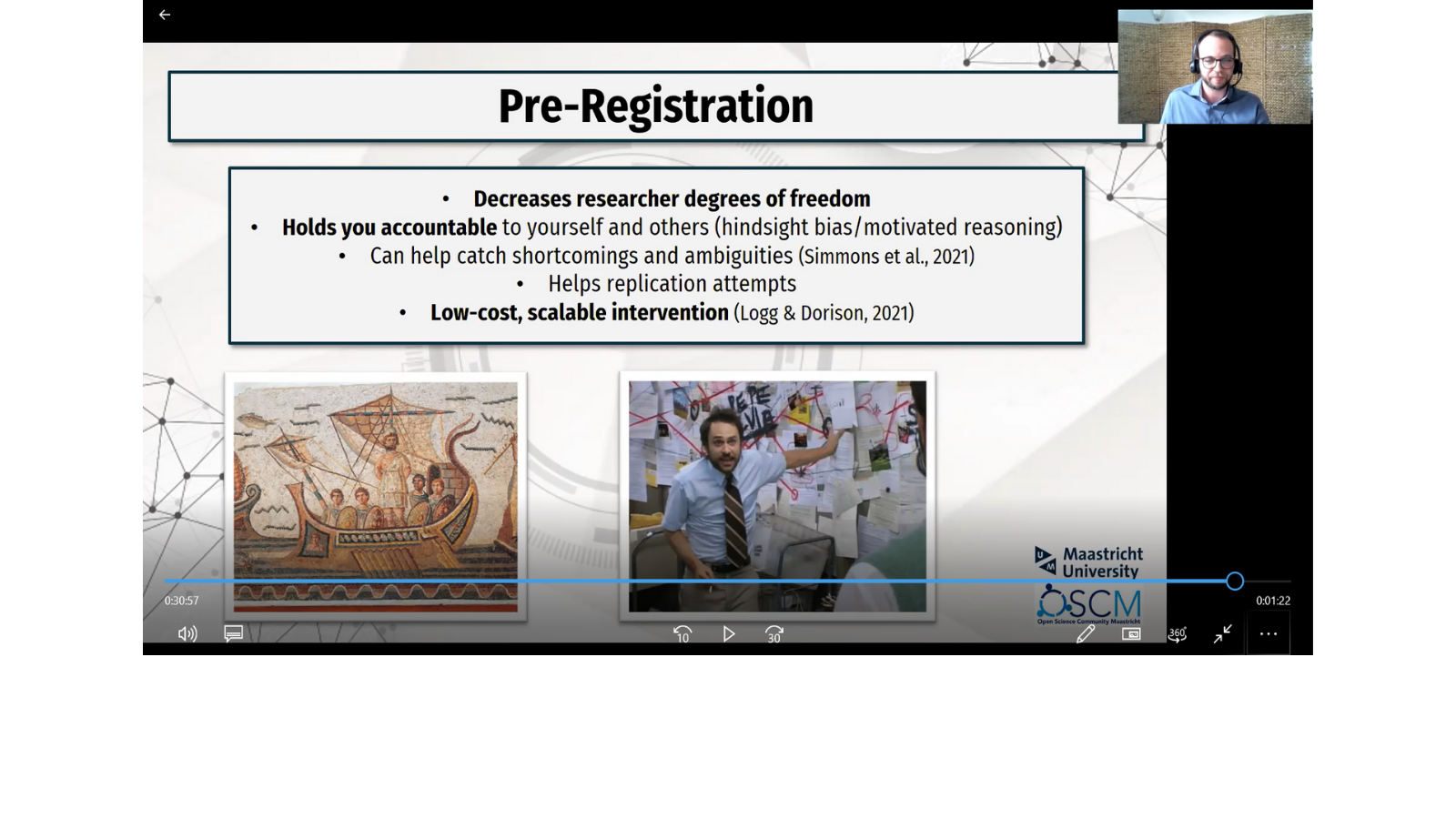Advancing Registered Reports in Organizational Research (ARROR) is an initiative that promotes the use of Registered Reports (i.e., a publication format in which peer-review is conducted before data is collected) in the fields of organizational behavior, management, and applied psychology. This initiative teaches researchers, editors, and reviewers on the importance and relevance of Registered Reports.
ARROR provides hands-on guidance and best practices on why and how to write and review Registered Reports in the field of organisational research. The key objectives are to increase the number of submitted Registered Reports as well as the number of journals offering this open science publication model through a dedicated website and workshops across the globe.
Although Registered Reports have the potential to dramatically increase the trustworthiness of the findings in organisational research, a systematic review conducted by Dr. Briker revealed that until now only very few scholars submit their work through this format and mostly this work is rejected. In ongoing workshops at international conferences and conversations with authors, editors, and reviewers within the realm of a systematic review conducted by Dr. Briker, it became clear that most scholars in the fields of management, organizational behaviour, and applied psychology lack the knowledge and skills regarding why and how they should successfully submit a Registered Report.
This project aims to provide researchers and reviewers and editors with easily accessible tools (e.g., through workshops and a dedicated website) to better write and review Registered Reports. Wider implementation of Registered Reports will make the research in this field more transparent and reproducible. This alternative publication format will allow researchers to focus more on methodological rigor instead of novelty. On a broader level, a central goal is to raise awareness of this publication format through regular international events and workshops and a to-be-developed website aimed at different target groups (authors, editors, Ph.D students, faculty, etc.) Obstacles and solutions: Currently there are substantial knowledge gaps on what Registered Reports are and why they are necessary. These include prevalent myths about potential downsides of Registered Reports (e.g., are less cited, require more effort and money, etc.) that – although empirical evidence suggests them not to be true – hamper the usage and implementation of this promising publication format. The solution to this problem is to educate researchers across levels with low-entry, hands-on workshops and talks about the truth behind these common misconceptions, and provide evidence-based guidelines.
What has the initiative achieved so far?
ARROR has already achieved relevant outputs. Dr. Briker has held workshops and talks about the promise of Registered Reports and associated best practices at international conferences, including the field’s leading conference, the Academy of Management Conference 2021. Through these actions, he reached more than 300 scholars around the world that are now better informed about Registered Reports. Moreover, Dr. Briker has held regional talks and workshops at Maastricht University, Justus-Liebig-University Giessen or Rijksuniversiteit Groningen, mostly to Ph.D. students to promote the usage of this publication format. This initiative has uncovered several key learnings. First, scholars and editors need easily and quickly accessible tools, which is why both specific, interactive, and user-friendly workshops and a website are key to simplifying and accelerating the implementation of Registered Reports in organisational research. Second, to make Registered Reports more used, a debunking of common myths (e.g., they are less cited, require more effort and money, etc.) is crucial. Thus, hands-on talks and workshops are necessary to provide evidence-based clarity regarding these misconceptions. Third, successful examples are relevant so that scholars can look up to star researchers that use this format themselves. As such, receiving input and bringing on board these star researchers is crucial for the success of this initiative.
How FAIR (Findable, Accessible, Interoperable and Reproducible) is the practice?
Input regarding Registered Reports, best practices, guidelines, and ideas and recommendations from star researchers can be obtained by everyone through the Open Science Framework’s repository, where all the materials have been uploaded. This link has been used to inform researchers and editors about the relevance and utility of this publication approach. Most other activities included face-to-face activities such as workshops (e.g., at the Academy of Management Conference 2021) or talks at different universities across Europe. Further to this, many other actions are in the pipeline for Dr. Briker so that ARROR can be easily and widely replicated across different departments and institutions across the globe.
About the applicant
Roman Briker is an Assistant Professor in Organizational Behavior at Maastricht University, School of Business and Economics, He obtained his Ph.D. (summa cum laude) from Justus-Liebig-University Giessen (Germany). Before that, he was a visiting researcher at TCU (Fort Worth, Texas) and studied psychology at the Universities of Giessen and Mainz (Germany). Roman’s research interests are time at work, organizational hierarchies, and human reactions toward AI. He is an Open Science Ambassador at Maastricht University and he studies and teaches others in workshops and lectures about a variety of open science topics. In particular, he is interested in pre-registration, registered reports, and replications.










